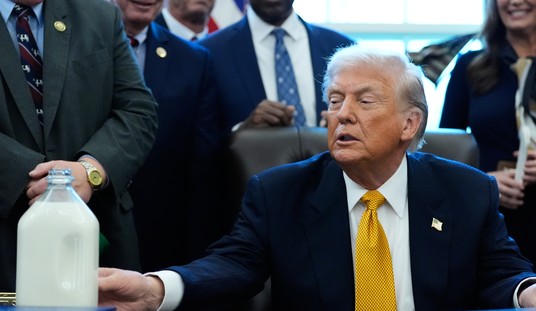During the Cuban missile crisis, Kennedy warned that the "fruits of victory would be ashes in our mouth". His admonition came close to realization. This and similar cliffhanger episodes, which are just publicly known ones, show what a thin reed nuclear deterrence is.
During comments at the World Economic Forum in January, Trump said he previously spoke with Russian President Vladimir Putin about denuclearization. His Russian counterpart “really liked the idea,” Trump said, and so did China.
“I think the rest of the world, we would have gotten them to follow,” the president noted.
“Tremendous amounts of money are being spent on nuclear, and the destructive capability is something that we don’t even want to talk about today,” Trump continued, reiterating his desire to see denuclearization talks begin.
In February, Trump followed up by calling for a 50 percent reduction in nuclear weapon spending by the U.S., China, and Russia. He mentioned the economic opportunity costs: “We’re all spending a lot of money that we could be spending on other things that are actually, hopefully much more productive.”
Then, in March, he once again addressed the issue.
But what about China and Russia? Where do they stand these days?
On April 1 , Chinese Foreign Minister Wang Yi “addressed the global nuclear balance, calling for the full elimination of nuclear weapons,” while also “rejecting US calls for China to join trilateral arms control talks with Russia.” This comment appeared alongside criticism of the U.S.'s tariff against China.
Recommended
As for Russia, “the Kremlin told reporters on March 7 that it was open to dialogue and broad discussions with the United States about their nuclear arsenals after US President Donald Trump issued a broad call for other nuclear powers to draw down their stockpiles.”
Shift now to tariffs. What—pray tell—is their link to disarmament efforts?
Trump can use new tariffs as economic levers to incentivize countries to participate in nuclear disarmament deals or not to nuclearize.
Tariffs may help achieve these strategic goals:
- Dispel the perception that the U.S. is acting purely self-interestedly in its implementation of tariffs, given shared concern with nuclear war.
- Achieve massive budgetary cuts by offsetting a new arms race.
- Reshape the relationship between the defense industry and the military. The Secretary of Defense voiced concern regarding military leaders who get jobs with defense contractors after retiring. This practice and defense lobbying exemplify the incestuous and oft-mentioned military-industrial complex Eisenhower famously criticized.
- Enhance national security. One goal of Trump’s tariff regime is to achieve security through industrialization. But what use is the latter if it, and the society it serves, are under an existential security threat?
- Provide a tool to effectuate a new and much different deal to replace the New Start Treaty, designed to limit Russian and U.S. nuclear stockpiles and expiring February 4, 2026, by jump-starting negotiations.
- Free funds for other purposes such as R&D for cutting edge energy sources, thereby removing one source of international tensions.
Trump’s focus on business deal-making provides a rare opportunity to address the financial and economic incentives for disarmament. Also, one easily visualizes this administration using its everything-on-the-table style to assemble a motley crew of brainiacs—techno whiz-kids, scientists, and policy wonks—to staff a Manhattan Project in reverse. Dub it the “ExComm” to memorialize the advisers who convened during the Cuban missile crisis. This crew would address the very thorny treaty compliance issues posed in the rapidly evolving environment of new defense technologies, a far more useful goal at this point in history than sending people to Mars.
Even if total denuclearization fails, the attempt will enhance the U.S.’s standing and spur fresh thinking contrary to the ossified Cold War presuppositions surrounding nuclear policy. It will also highlight an issue that has seen very little real movement for quite some time, including on the left. Not to mention how publicly tantalizing such a radical effort would be amid everything else unfolding.
But if this Hail Mary pass is successful, it will be this administration’s defining historical legacy.
The effort necessitates a bipartisan commitment that surmounts the toxicity of the current political climate. This is a non-partisan issue and one ripe for U.S. global leadership.
My view is that morality requires a total denuclearization, but that's a story for another article.
























Join the conversation as a VIP Member